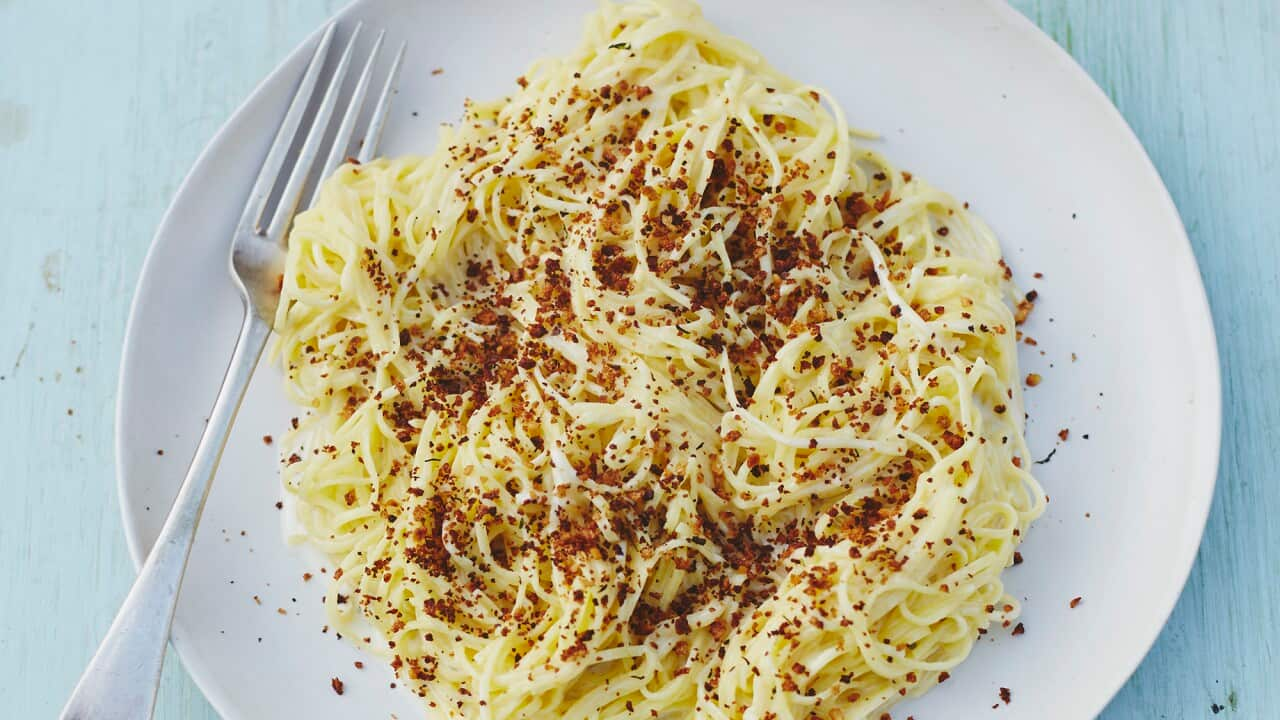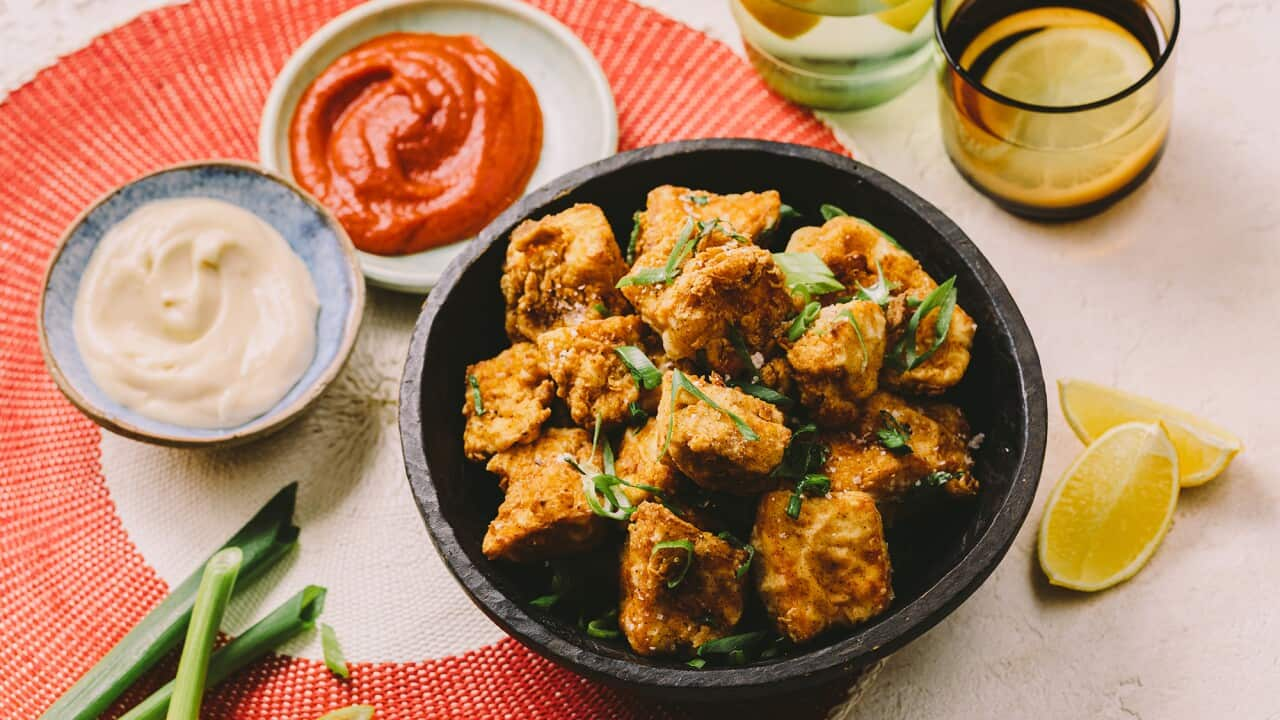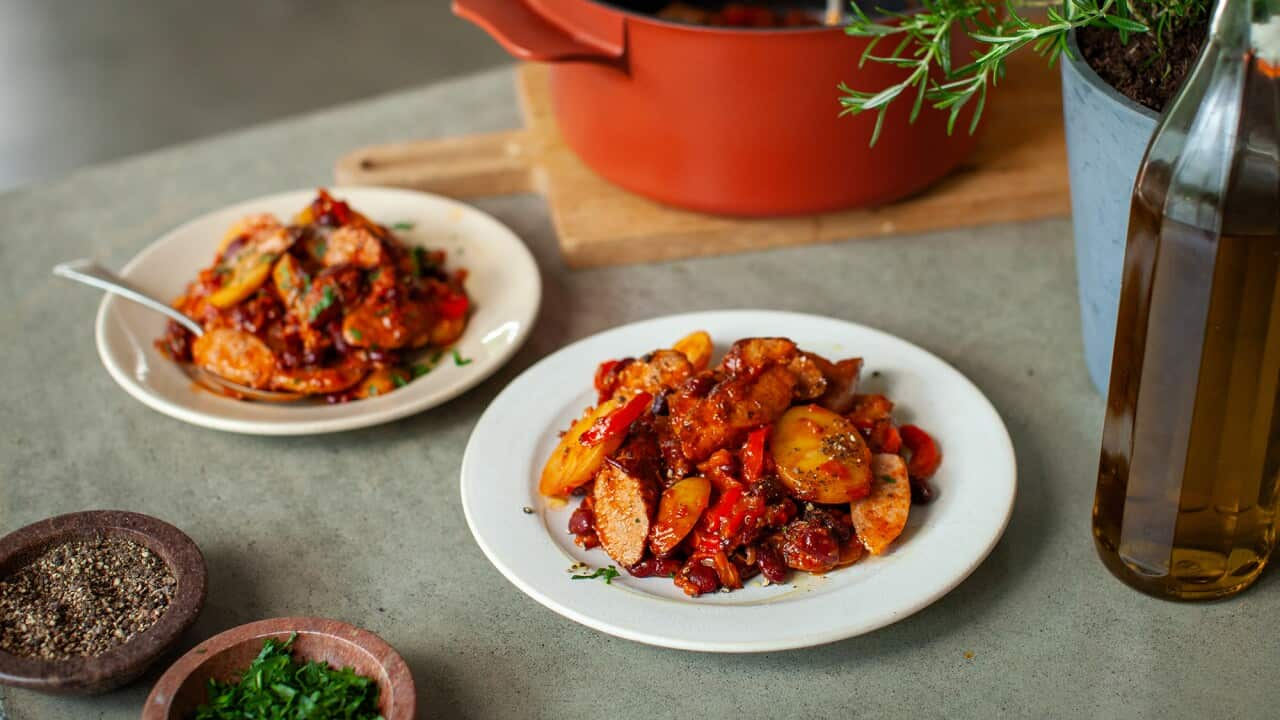serves
8
prep
40 minutes
cook
30 minutes
difficulty
Easy
serves
8
people
preparation
40
minutes
cooking
30
minutes
difficulty
Easy
level
Ingredients
- 700 g fresh full-fat ricotta
- 100 g caster sugar
- 200 ml pure cream
- finely grated zest of 1 lemon
- 1 tbsp marsala
- 1 vanilla pod, split and seeds scraped, or 1 tsp vanilla extract
- 2 eggs, plus 1 egg yolk, lightly beaten
- 50 g dark chocolate (70 per cent cocoa), finely chopped
- 2–3 tbsp finely chopped Italian candied fruit (see Note)
- 3 tbsp pine nuts
Sweet pastry
- 300 g (2 cups) plain flour, plus extra for dusting
- 150 g chilled unsalted butter, cut into cubes
- 80 g (⅓ cup) caster sugar
- 1 egg, plus 1 egg yolk
- finely grated zest of 1 lemon
- 1 vanilla pod, split and seeds scraped, or 1 tsp vanilla extract
Chilling time: 3 hours
Instructions
1. To make the dough for the pastry, pulse the flour and butter together in a food processor until you have pea-sized lumps of butter. Add the sugar and pulse to combine. Add the egg and yolk, lemon zest and vanilla and continue to pulse until the mixture almost forms a ball. Tip the dough onto a work surface and bring it together with your hands. Wrap in plastic wrap and flatten into a disc. Refrigerate for at least 1 hour.
2. Preheat the oven to 180°C.
3. On a lightly floured work surface, roll out the pastry to a 2-mm thickness. Drape into a deep 24 cm fluted tart tin, pressing the pastry into the tin. Roll your rolling pin along the edges of the tin to trim any excess pastry, then refrigerate for 15 minutes.
4. Meanwhile, whisk the ricotta, sugar and cream together in a large bowl until smooth. Change to a wooden spoon and stir in the lemon zest, marsala and vanilla. Gently stir in the egg until just combined, followed by the chocolate and candied fruit. Pour into the chilled pastry case, then top with the pine nuts.
5. Bake for 30–35 minutes until the pastry is golden and the filling is just set – it should still be a little wobbly. Allow to cool, then refrigerate for at least 2 hours until chilled. Remove from the tin and serve.
Note
• Italian candied fruits, most commonly cedro (a type of citrus), pear, fig and mandarin, can be found at Italian delis and grocers. They are used in a range of Italian desserts, including cannoli, cassata and sweet breads like panettone. If unavailable and you can’t find a good-quality substitute, just leave them out – the tart will still be lovely.
by Julia Busuttil Nishimura, Published by Plum, RRP $39.99, Photography by Armelle Habib.
Cook's Notes
Oven temperatures are for conventional; if using fan-forced (convection), reduce the temperature by 20˚C. | We use Australian tablespoons and cups: 1 teaspoon equals 5 ml; 1 tablespoon equals 20 ml; 1 cup equals 250 ml. | All herbs are fresh (unless specified) and cups are lightly packed. | All vegetables are medium size and peeled, unless specified. | All eggs are 55-60 g, unless specified.









